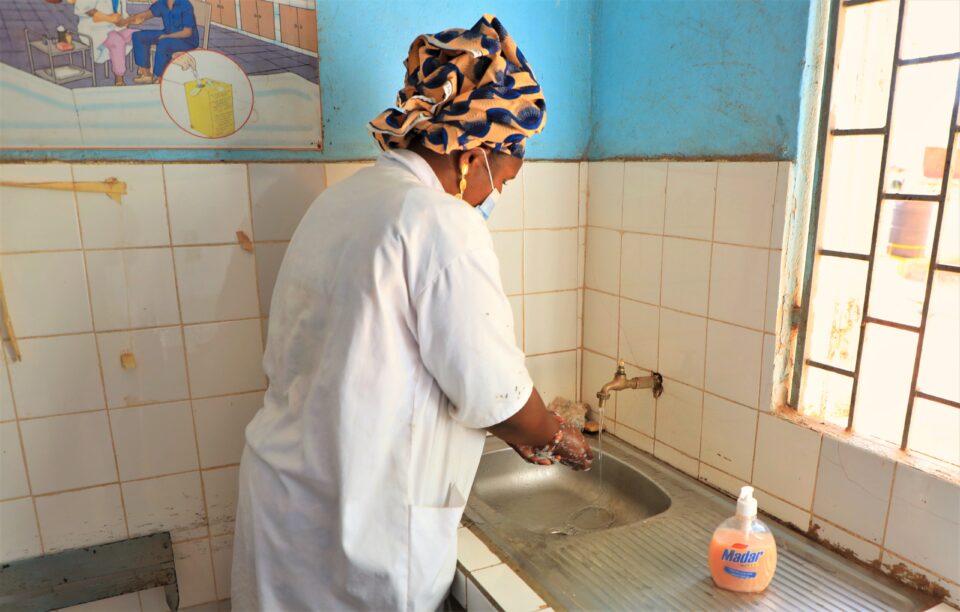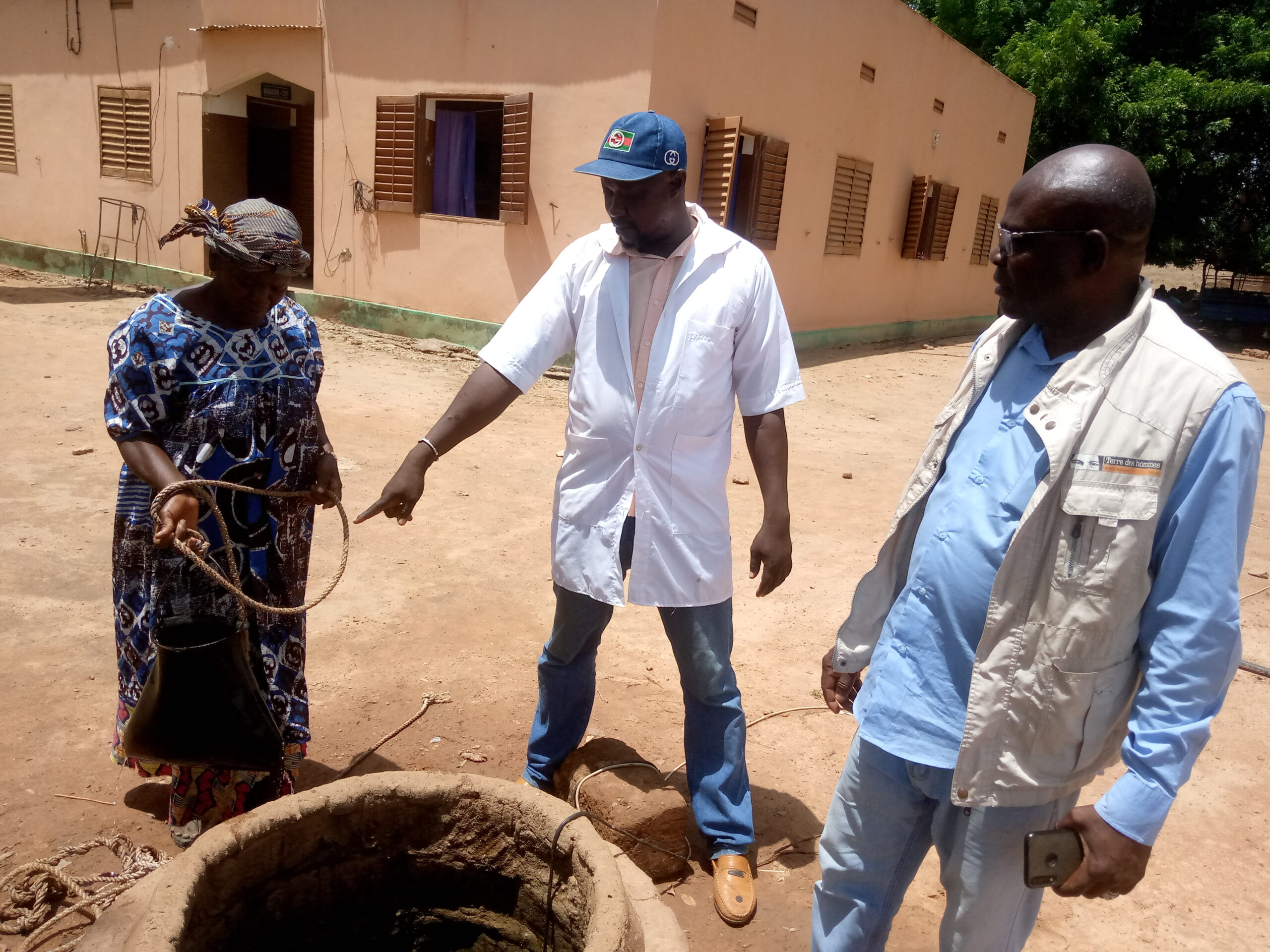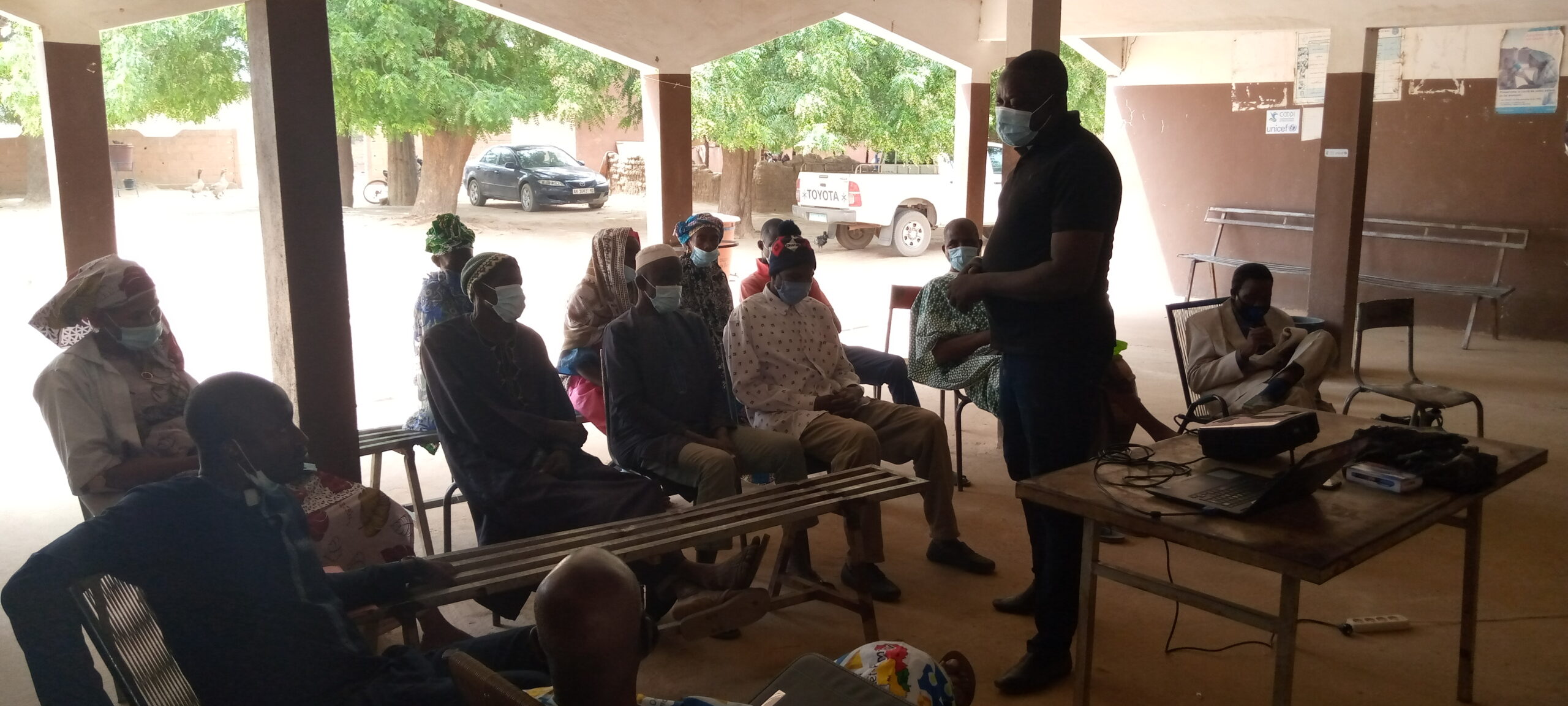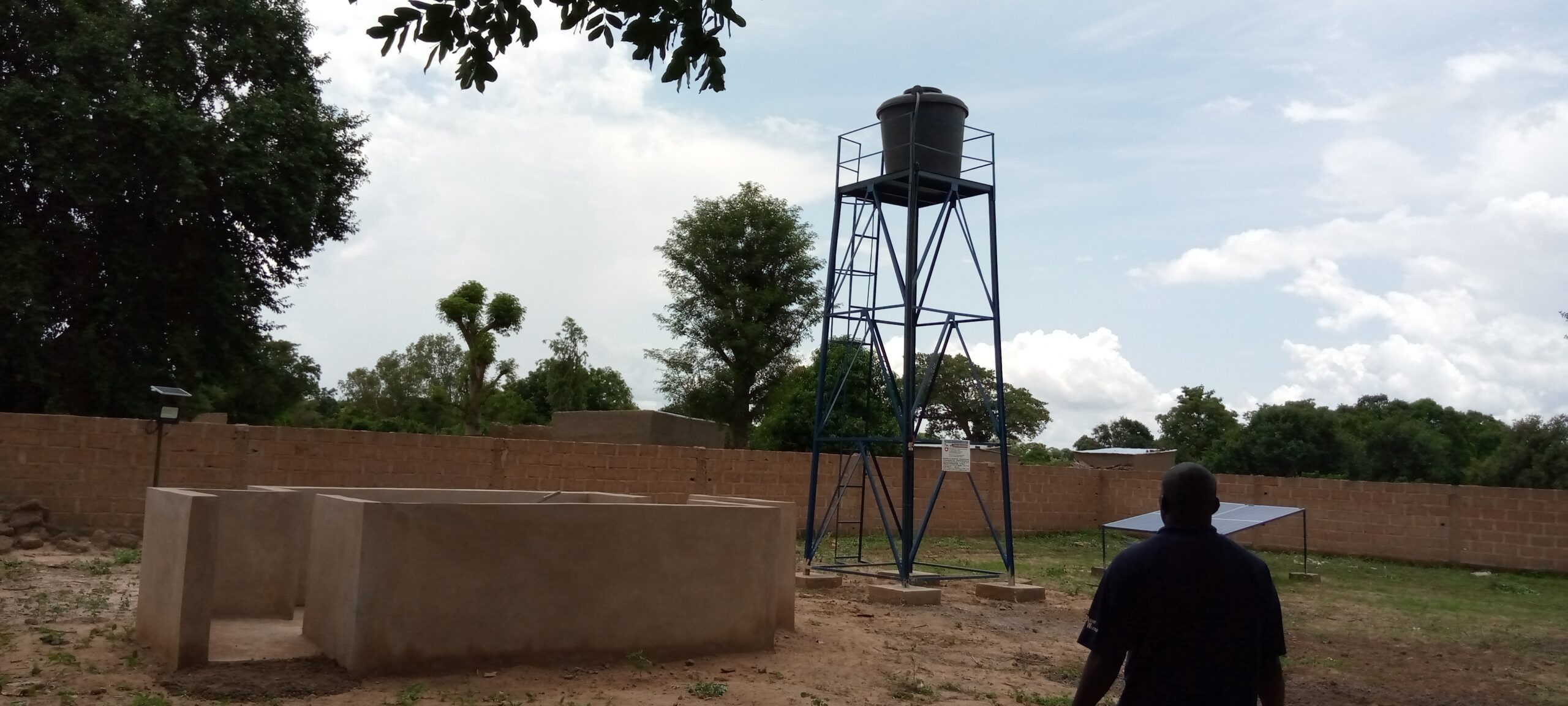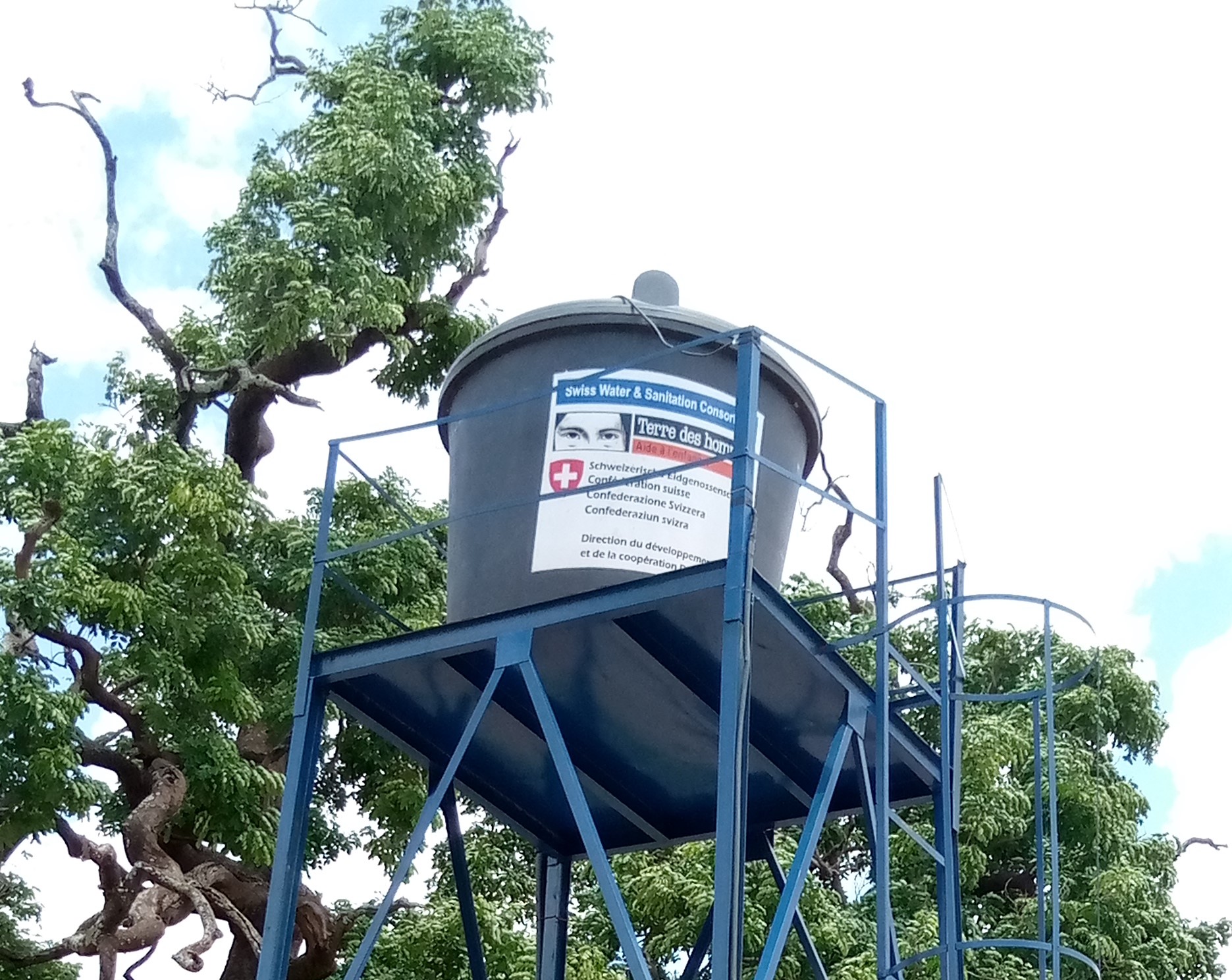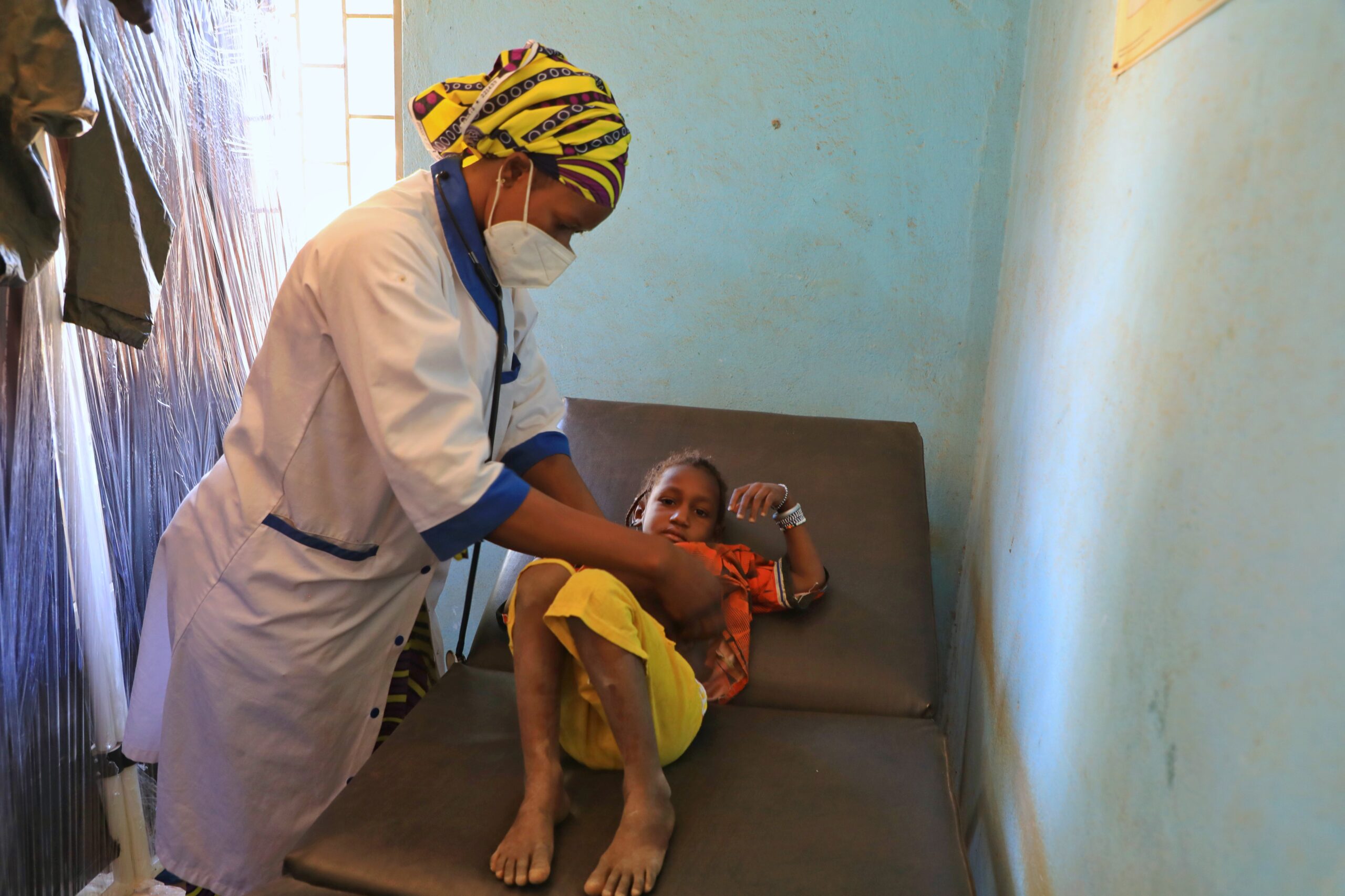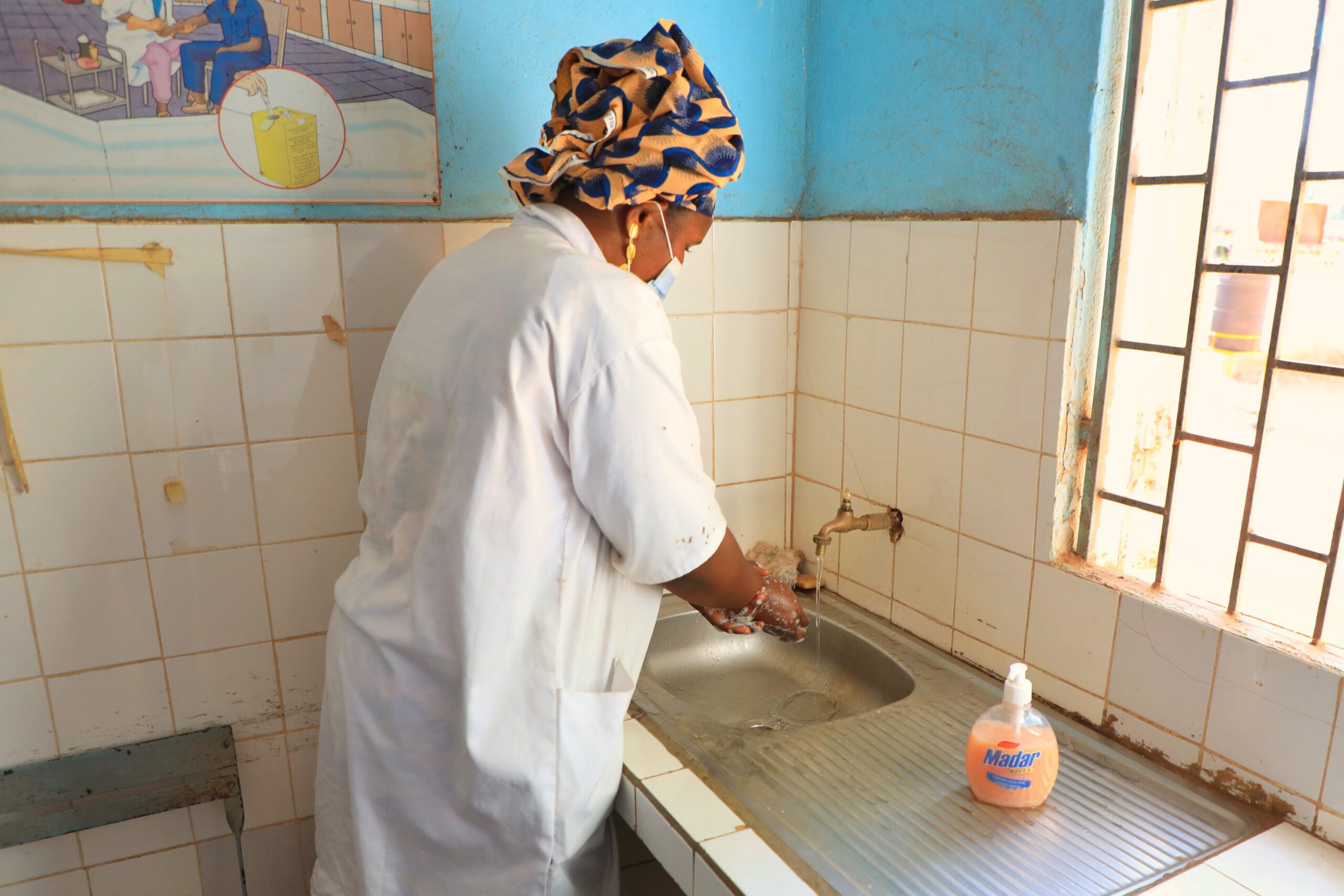(Version française ci-dessous)
Authors: Aboubacar BALLO, WASH Coordinator, Terre des hommes in Mali; Bruno PASCUAL, Head of Wash expertise, Terre des hommes
Photo Credits: Terre des hommes
The Swiss Water and Sanitation Consortium (SWSC) and its member organisations are contributing to the improvement of water and sanitation services worldwide – this is particularly crucial during the current COVID-19 pandemic. Thanks to the intervention of Terre des hommes in Mali, several health care facilities offer improved water services, including the health care facility in Kodougouni.
Assessing the WASH Situation using FACET
At the start of the project in 2020, Terre des hommes and the health authorities carried out an assessment of access to water, sanitation and hygiene (WASH) in ten health care facilities (HCF) in the Segou region of Mali, using the consortium's FACET tool. The tool compiles standard questions on WASH, based on the standardised JMP indicators (WHO/UNICEF). The findings of the survey were worrying because while 70% of the HCFs offered basic water service, service was limited or non-existent in the areas of sanitation, medical waste management, hand hygiene and environmental cleaning. Furthermore, WASH issues were not prioritised in the budget plans of health facility managers.
Photo: Traditional well in the HCF of Kodougouni (before the project intervention)
Capacity Building: The WASH FIT Approach
In response to these findings, Terre des hommes, within the framework of the Swiss Water and Sanitation Consortium and with the financial support of the Swiss Agency for Development and Cooperation (SDC), supported the ten HCFs in implementing the WASH FIT approach.[1] In collaboration with the Ségou Regional Health Directorate, the capacities of the HCF managers (technical agents, town hall, community health associations) were strengthened using the WASH FIT tool. A participatory improvement and monitoring plan for water, hygiene and sanitation services was developed by each HCF.
[1] WASH FIT is a tool for improving water, sanitation and hygiene services in health facilities, developed by WHO and UNICEF.
Photo: Training health staff on WASH FIT
Infrastructure Improvements: Construction of Water Supply Systems
Before the project’s intervention, the Kodougouni HCF did not have a suitable water supply system. It only had a traditional well with unsafe water – it was polluted with faecal coliforms. In accordance with the improvement plan put in place by the WASH FIT committee, Terre des hommes supported the construction of a water supply system, which was the HCF’s highest priority need.
Photo: New water supply system
Mechanisms for the Sustainable Management of the Water System
Two local technicians were trained and equipped to maintain the water supply system. The Health Centre Committee (ASACO) has included a lump sum of 10,000 CFA francs in its monthly budget planning for the maintenance of the structure.
Photo: The water tower
As a result of these interventions, the HCF of Kodougouni, once one of the poorest in the Segou region, now provides basic water service to over 5000 people who rely on the HCF.
Following a national assessment by the Ministry of Health, the facility was furthermore selected to host a telemedicine unit, as part of a programme to improve the technical health platform targeting 15 HCFs in Mali. Progress in WASH services was one of the determining criteria for the selection process.
Photo: A doctor examines a child in a health centre in Mali
"Before, women used to fetch water outside for deliveries. We had to go out into the yard to get water from the polluted traditional well. Now we have access to quality water right under our noses, in the delivery room, in all the other units and in the courtyard. This makes our work much easier. Deliveries are much safer!”
Korotimi Tangara, midwife of the Kodougouni health centre.
Photo: A midwife washing her hands at the sink
For more information, please visit:
- Swiss Water and Sanitation Consortium (SWSC) website on WASH in HCF: https://waterconsortium.ch/wash-in-health-care-facilities/
- Article on lessons learned and best practices from WASH activities in health care facilities: "Improved Sanitation and Hygiene in Health Care Facilities in Mali through WASH FIT and Community Mobilization"
Contact:
Aboubacar BALLO, WASH Coordinator, Terre des hommes Lausanne in Mali
aboubacar.ballo@tdh.ch
+223 91 57 96 08
______________________________________________________________________________
Terre des hommes favorise l'amélioration durable du système WASH dans les centres de santé au Mali
Auteurs : Aboubacar BALLO, Coordinateur WASH, Terre des hommes au Mali ; Bruno PASCUAL, Responsable de l'expertise WASH, Terre des hommes
Crédits photos : Terre des hommes
Le Consortium suisse pour l'eau et l'assainissement (SWSC) et ses organisations membres contribuent à l'amélioration des services d'eau et d'assainissement dans le monde entier, ce qui est particulièrement crucial pendant la pandémie actuelle de COVID-19. Grâce à l'intervention de Terre des hommes (Tdh) au Mali, plusieurs établissements de santé offrent des services d'eau améliorés, notamment l'établissement de santé de Kodougouni.
Évaluation de la situation EHA à l'aide de FACET
Au début du projet en 2020, Tdh et les autorités sanitaires ont réalisé une évaluation de l'accès à l'eau, à l'assainissement et à l'hygiène (EHA) dans dix établissements de soins de santé (ESS) de la région de Ségou au Mali, en utilisant l'outil FACET du consortium. Cet outil compile des questions standard sur le EHA, basées sur les indicateurs du JMP (OMS/UNICEF). Les résultats de l'enquête étaient inquiétants car si 70% des ESS offraient un service d'eau de base, le service était limité ou inexistant dans les domaines de l'assainissement, de la gestion des déchets médicaux, de l'hygiène des mains et du nettoyage de l'environnement. Les questions relatives à l'eau, à l'assainissement et à l'hygiène n'étaient pas prioritaires dans les plans budgétaires des gestionnaires des établissements de santé.
Photo : Puits traditionnel dans le ESS de Kodougouni
Renforcement des capacités : L'approche WASH FIT
Face à ces constats, Terre des hommes, dans le cadre du Consortium Suisse pour l'Eau et l'Assainissement et avec le soutien financier de la Direction du Développement et de la Coopération (DDC), a appuyé les dix ESS dans la mise en œuvre de l'approche WASH FIT.[2] En collaboration avec la Direction Régionale de la Santé de Ségou, les capacités des gestionnaires des ESS (agents techniques, mairie, associations de santé communautaire) ont été renforcées en utilisant l'outil WASH FIT. Un plan participatif d'amélioration et de suivi des services d'eau, d'hygiène et d'assainissement a été élaboré par chaque ESS.
[2] WASH FIT est un outil destiné à améliorer les services d'eau, d'assainissement et d'hygiène dans les établissements de santé, mis au point par l'OMS et l'UNICEF.
Photo : Formation du personnel de santé sur le WASH FIT
Amélioration des infrastructures : Construction de systèmes d'approvisionnement en eau
Avant l'intervention du projet, le ESS de Kodougouni ne disposait pas d'un système d'approvisionnement en eau adapté. Il ne disposait que d'un puits traditionnel dont l'eau était insalubre - elle était polluée par des coliformes fécaux. Conformément au plan d'amélioration mis en place par le comité WASH FIT, Terre des hommes a soutenu la construction d'un système d'approvisionnement en eau, qui était le besoin le plus prioritaire du ESS.
Photo : Nouveau système d'approvisionnement en eau
Mécanismes pour la gestion durable du système d'eau
Deux techniciens locaux ont été formés et équipés pour entretenir le système d'approvisionnement en eau. Le Comité du Centre de Santé (ASACO) a inclus une somme forfaitaire de 10.000 francs CFA dans sa planification budgétaire mensuelle pour l'entretien de la structure.
Photo : Le château d'eau
Grâce à ces interventions, le ESS de Kodougouni, autrefois l'un des plus pauvres de la région de Ségou, fournit désormais un service d'eau de base à plus de 5000 personnes qui dépendent du ESS.
Suite à une évaluation nationale du Ministère de la Santé, la structure a en outre été sélectionnée pour accueillir une unité de télémédecine, dans le cadre d'un programme d'amélioration du plateau technique sanitaire ciblant 15 ESS au Mali. Les progrès en matière de services EHA ont été l'un des critères déterminants du processus de sélection.
Photo : Un médecin examine un enfant dans un centre de santé, Mali
« Avant, les femmes effectuaient la corvée d’eau pour les accouchements. Il nous fallait sortir dans la cour pour nous approvisionner en eau à partir du puits traditionnel pollué. A présent, nous avons accès à de l’eau de qualité sous nos nez, dans la salle d’accouchement, dans toutes les autres unités et dans la cour. Cela nous facilite beaucoup la tâche. Les accouchements se font dans des conditions plus sûres ! »
Korotimi Tangara, matrone du centre de santé de Kodougouni.
Photo : Une sage-femme se lave les mains au lavabo
Pour plus d'informations, veuillez consulter le site :
- Site web du Consortium suisse pour l'eau et l'assainissement (SWSC) sur le EHA dans les ESS : https://waterconsortium.ch/wash-in-health-care-facilities
- Article sur les leçons apprises et les meilleures pratiques des activités EHA dans les établissements de soins de santé : "Improved Sanitation and Hygiene in Health Care Facilities in Mali through WASH FIT and Community Mobilization"
Contact :
Aboubacar BALLO, coordinateur WASH, Terre des hommes au Mali
aboubacar.ballo@tdh.ch
+223 91 57 96 08

